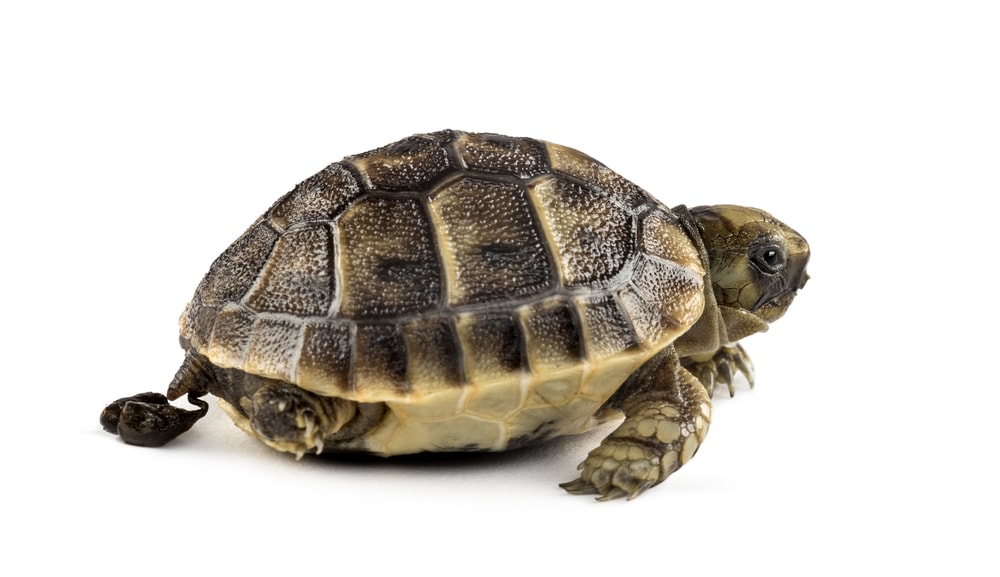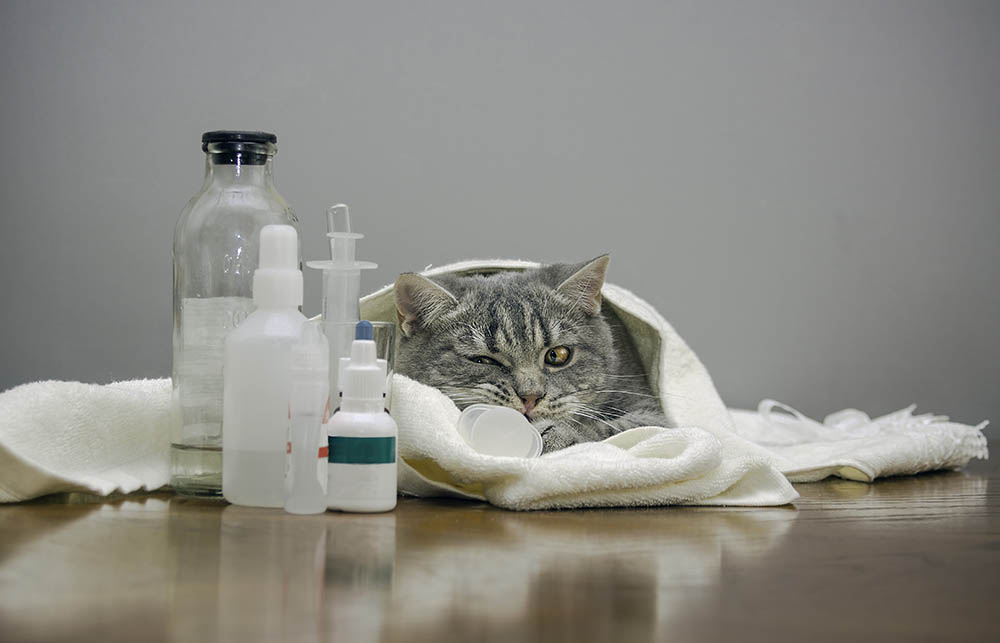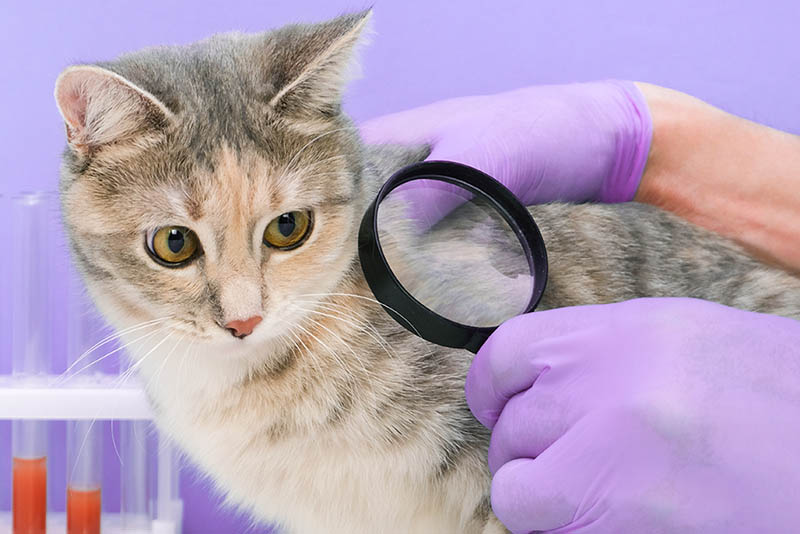Dog Leaking Urine All of a Sudden: Possible Causes and What to Do (Vet Answer)

Updated on
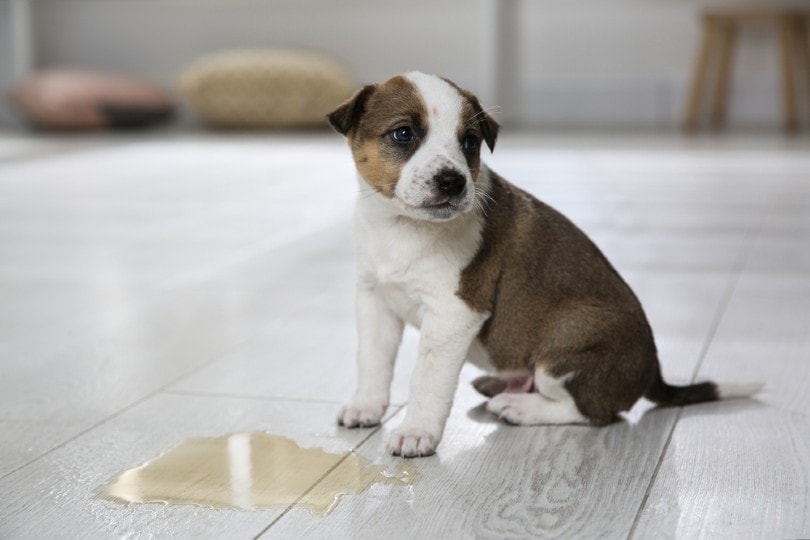
If you constantly find small wet spots on the floor, the couch, or your dog’s bed, and/or you have noticed urine drops leaking frequently from your dog, they are suffering from “urinary incontinence”. A characteristic of urinary incontinence is that dogs seem to be unaware of the fact that they are leaking urine.
There are several possible causes of urinary incontinence in your dog:
- Urinary tract infections
- Lose the muscle tone in the urinary sphincter (Urethral Sphincter Mechanism Incontinence or USMI)
- Urinary bladder stones (Uroliths), polyps, or tumors
- Damage on the nerves controlling the urinary system due to infections, trauma, or tumors
- Excessive water drinking. Frequently caused by diseases such as diabetes, Cushing’s disease, or others
- Hormonal causes
- Urine retention
Visit the Veterinarian
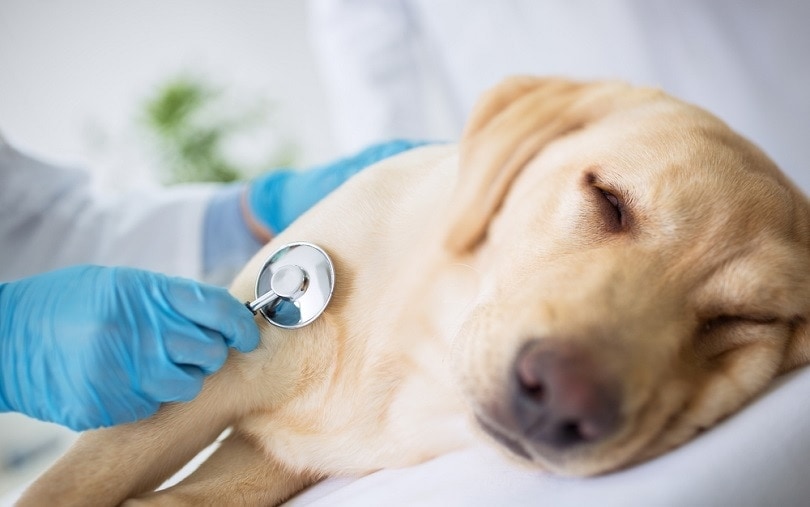
To find a solution to urinary incontinence, the primary cause needs to be identified. You should bring your dog for consultation and provide the veterinarian with all the possible information you can, including:
- What is the age of your dog?
- When did you notice the problem starting?
- What are the frequency and approximate volume of urine leaked?
- Please make sure to inform the veterinarian if your dog is a female dog that has been spayed.
Veterinary Examinations, Test, and Treatment Possibilities
The veterinarian will perform a physical examination of your dog. After the physical examination, the veterinarian will proceed to perform diagnostic tests. A urine and blood sample will be needed to check the possibility of urinary tract infections. If this is the case, your dog will most likely be put on oral antibiotics for a week or two. In some cases, the veterinarian will want to collect a sterile urine sample directly from the urinary bladder using an ultrasound to guide the needle and catheter into the bladder.
The veterinarian can do a good examination of the urinary tract with ultrasonography and be able to diagnose if the problem is caused by bladder stones, bladder polyps, or other bladder masses. Treatment for bladder stones could be with oral medication or might need surgery, this will depend on the size and number of the stones. Other bladder masses might require surgical removal.
In the case that the veterinarian suspects the incontinence is caused due to nervous system issues, additional tests such as MRIs might be requested. The treatment and prognosis will depend on the specific cause of the nervous tissue damage.
Read also: How To Get a Urine Sample from a Dog: Safe & Easy Vet Approved Steps
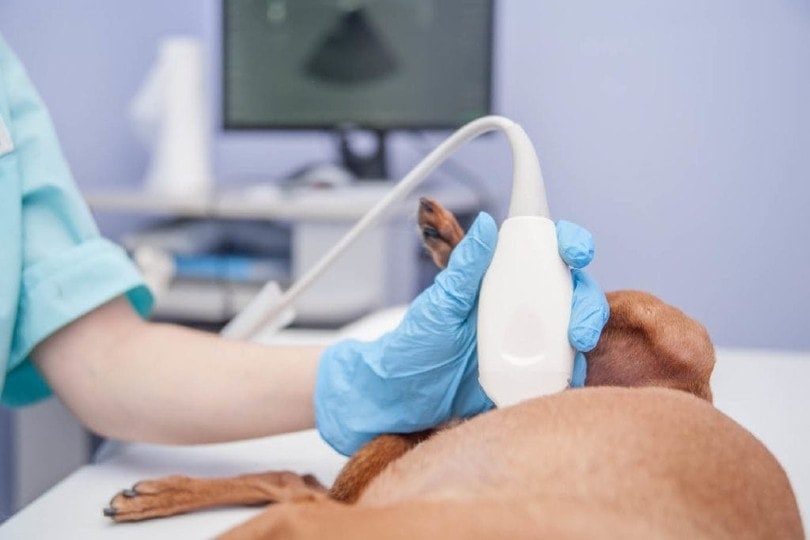
Urethral Sphincter Mechanism Incontinence (USMI)
One of the most common causes of urinary incontinence in dogs is the Urethral Sphincter Mechanism Incontinence or USMI. The urethral sphincter is a muscle located between the urethra and the bladder. The urethral sphincter works in a similar way to a dam—it closes the flow of urine from the bladder to the urethra allowing the bladder to fill up.
When the bladder is full and expanded, a signal is sent to the brain, this is when the dog feels the urgency to urinate. Relaxing the urethral sphincter normally requires a conscious input, once the urethral sphincter relaxes and opens, urine is released from the bladder into the urethra.
If the urethral sphincter loses tone and becomes weak, a small amount of pee is constantly leaked from the bladder into the urethra without a “time to pee” signal to the brain. There is no “full bladder” signal to the brain nor a conscious input done to relax the urethral sphincter, this is the reason why dogs with USMI are unaware of the fact that they are leaking pee.
Other Factors to Consider
Several factors such as aging can cause the loss of urethral sphincter tone. About 11%-20% of incontinence cases are presented in spayed large-breed female dogs and this seems to be caused by the decrease of estradiol hormones. Male spayed dogs might also suffer from “spray incontinence” due to the decrease of testosterone. If the veterinarian suspects that the cause of the incontinence is due to a hormonal imbalance, your dog might be having to start specific hormonal therapy based on the gender of your dog.
Hormonal Treatment
For female dogs, the nonsteroidal estrogen Diethylstilbestrol (DES) is given orally once a day for 7–10 days and then reduced to once every week. It is important to follow the veterinarian’s advice in the appropriate doses for your dog. In the case of male dogs suffering from “spay incontinence,” monthly testosterone injections might be prescribed.
Another possible retreatment for USMI is phenylpropanolamine this medication acts by increasing the smooth muscle tone and allowing closing pressure of the urethral sphincter. Phenylpropanolamine treatment needs to be given orally twice or three times a day and needs to be carefully administered due to its effect on the smooth muscle of the cardiovascular system.
It is always a good dog owner practice to keep a close eye on your dog anytime a new medical treatment is started. Your veterinarian might request follow-up visits to check your dog’s blood or other tests. In some cases where the urethral sphincter mechanism is not responsive to oral treatment, your dog might need surgery. Other alternative treatments used by some veterinarians are the injections of collagen directly into the urethra and the use of stem cell therapy.
What Can I Do If My Dog Is Leaking Urine?
If you have noticed your dog leaking urine, it is very important to keep in mind that getting frustrated about having to constantly clean after the dog will not solve the problem.
As in any medical case, it is important to consider that the sooner you bring your dog for a vet consultation, the better. By acting quickly you can avoid an infection to complicate, for example, a urinary tract infection left unattended can develop into a kidney infection. Your veterinarian will find the cause and recommend you the appropriate treatment to solve the problem.
Having a pet means cleaning up smells, stains, hair, vomit, and more...and you can add to your pet clean-up routine with the Hepper Advanced Bio-Enzyme Pet Stain & Odor Eliminator Spray.
- ADVANCED ENZYMATIC CLEANER - Penetrates the most stubborn smells and stains at the deepest molecular...
- FOR ANY MESS, ON ANY SURFACE - This pet odor eliminator cleans your carpets, floors, furniture,...
It's our product, and we love it so much, we just have to share! It permanently removes the very worst smells and stains, and we offer a 100% satisfaction guarantee!
Featured Image Credit: New Africa, Shutterstock




